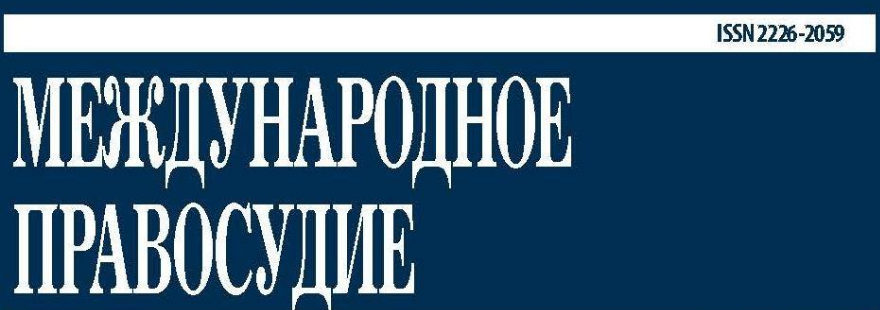- A
- A
- A
- ABC
- ABC
- ABC
- А
- А
- А
- А
- А
- HSE University
- Faculty of Law
- School of International Law
- News
- INTERNATIONAL JUSTICE: LOOKING TO THE FUTURE23-24 September 2021, Moscow
-
School
- About the School
- Research
- Academics
- "HSE University Journal of International Law"
-
Research and Study Laboratories and Groups
-
Research and Study Laboratories
-
Research and Study Groups
-
- Research and Methodology Units
- HSE Research Seminar on International Law
- Ph.D. Seminar
- Undergraduate track ‘International Law’
-
Projects
-
Status: active
- Applied project «Philip C. Jessup international law moot court competition training 2023-2024»
- Applied project 2024-2025 “Preparation for the Willem C. Vis Moot Competition, season 2024-2025”
- Fundamental Research Project "Legal Mechanisms for Overcoming Inequality"
- Participation of Young Lawyers as Clerks of the International Commercial Arbitration Court at the Chamber of Commerce and Industry of the Russian Federation
- Research project: International Competition ‘Dispute Resolution in the EAEU–2024’: Preparation and Participation of the Faculty of Law's Team
-
Status: completed
-
- Staff Members
-
Educational programs
- Bachelor's Programmes
- Master's Programmes
- Doctoral School of Law
Moscow, 3 Bolshoy Trekhsvyatitelsky Pereulok, rooms 227, 228b

E-mail: svetlana.smirnova@hse.ru
Located at a crossroads of global, regional, and national interests, contemporary international law affects almost all spheres of society. The School of International Law keeps pace with significant international events and legal adjudication in order to provide hands-on education that prepares future lawyers and legal scholars for the demands of the current legal landscape. The School is at once a ‘think tank’ that provides expert analysis and a producer of top legal experts and lawyers in international law.
 The Right to Regulate in International Economic Law: Towards a General Theory with Lessons from the GATS
The Right to Regulate in International Economic Law: Towards a General Theory with Lessons from the GATS
Göttingen: Universitätsverlag Göttingen, 2024.
HSE University Journal of International Law. 2025. Vol. 3. No. 1. P. 115-127.
Starzhenetsky V., Гейдарова С. Ф.
In bk.: Новые горизонты международного арбитража. Выпуск 8.. Iss. 8. 2025. Ch. 17. P. 439-461.
 MANDATORY CORPORATE HUMAN RIGHTS DUE DILIGENCE MODELS: SHOOTING BLANKS?
MANDATORY CORPORATE HUMAN RIGHTS DUE DILIGENCE MODELS: SHOOTING BLANKS?
Rusinova V., Sergei K.
Law. LAW. Высшая школа экономики, 2021

INTERNATIONAL JUSTICE: LOOKING TO THE FUTURE 23-24 September 2021, Moscow

On 23-24 September 2021, the School of International Law of the Higher School of Economics (Moscow) in cooperation with the International Justice Journal will convene an academic conference “International Justice: Looking to the Future”.
In 2021 International Justice Journal (Mezhdunarodnoe Pravosudie) will be celebrating its first 10th anniversary. Past ten years of international justice were rich not only in its quantitative, but in its qualitative sense: they have demonstrated a rise of the interstate disputes; the ICC was trying to transcend its perception as a ‘court for Africa’; some highest domestic courts have challenged the authority of the ECtHR, as well as the ICJ, and the CJ EU; the WTO dispute settlement system faced the appellate body crisis, and there have been started intergovernmental talks at the UNCITRAL with a view to reforming the existing investor-state dispute settlement system. Russia was a part and a participant of many of these changes: it experienced several rounds of the ‘Yukos' lawfare’, is facing a growing number of international cases with respect of Crimea, South Ossetia, and the downing of MH17. As a result of the reform of 2020, Russia has become the only state that has set up the competence of the Constitutional court to decide on the enforceability of the judgments of the international courts at the constitutional level.
The academic conference ‘International Justice: Looking to the Future’ is thought to take all these processes as the background for exchanging different views on the structured vision of the future of international courts and tribunals, their power and authority, and interrelation with the domestic courts. The use of methods of 'future studies' or ‘foresight’ for international justice should assist in the critical assessment of what should be changed and what should be kept, what should serve as the basis for the re-imagination of international justice, which factors and trends will influence the forthcoming developments. With this aim, the conference will dwell into methodological and theoretical issues of the future of international justice, deal with the interrelation between international and domestic courts, and analyze the peculiarities of development of the ICJ, the ECHR, the ICC and international criminal tribunals, WTO dispute settlement body, Court of the Eurasian Economic Union, and the international investment arbitration.
Speakers will be selected on the basis of the call for papers procedure.
Panels
1) Interaction between International and National Courts: Competition, Resistance, Cooperation, or a Mixture?(the contours of a new model or models of the relationship between international and national courts);
2) European Court of Human Rights: Between Judicial Diplomacy and Principled Resistance(Reform of the ECtHR: its outcomes and perspectives; evolutive interpretation of the Convention and its limits; execution of the ECtHR judgments; relationships between the ECtHR and other international as well as domestic courts);
3) International Criminal Justice as a Field for Reforms (reform of the ICC, new “hybrid” and specialized tribunals, regional criminal justice, expansion of subject-matter jurisdiction beyond the core international crimes and traditional actors);
4) Settlement of Trade Disputes: Regionalism vs Multilateralism (dispute settlement crisis of the multilateral trading system; the role of regionalism and its relationship with the WTO regime);
5) Investment Disputes: a Hard Road Ahead (tracks for the reforming of the investor-state dispute settlement system).
Application Procedure
We welcome papers in Russian and English, which address the themes and topics described above. Please submit an abstract of no more than 800 words by 15 July 2021 to the coordinator of the conference – Mr. Matvey Tarasov (mtarasov@hse.ru).
The following information must be provided with each abstract:
– the author's name, affiliation, and contact details, including email address and phone number;
– the author's CV, including a list of publications.
Applicants will be informed of the selection committee's decision no later than 30 July 2021.
Abstracts will be selected based on the following criteria: (i) alignment of the papers with the conference description; (ii) the originality and significance of the issues raised in the paper; (iii) the overall coherence of the paper to the program of the conference and its panels.
Draft papers should be submitted by 10 September 2021. Draft papers should be between 30 000 – 60 000 characters with spaces. Selected papers will be published in special Russian and English editions of the International Justice Journal.
The Conference will be convened in the online format.
Conference co-organizers:
|
School of International Law Faculty of Law National Research University Higher School of Economics
|
International Justice journal
|
- About
- About
- Key Figures & Facts
- Sustainability at HSE University
- Faculties & Departments
- International Partnerships
- Faculty & Staff
- HSE Buildings
- Public Enquiries
- Studies
- Admissions
- Programme Catalogue
- Undergraduate
- Graduate
- Exchange Programmes
- Summer Schools
- Semester in Moscow
- Business Internship
-
https://elearning.hse.ru/en/mooc/
Massive Open Online Courses
-
https://www.hse.ru/en/visual/
HSE Site for the Visually Impaired
-
http://5top100.com/
Russian Academic Excellence Project 5-100
- © HSE University 1993–2025 Contacts Copyright Privacy Policy Site Map
- Edit

